

Heimler’s Journey From Blind Spots to Business Clarity – A3logics Unleashes the Power of Live Intelligence
Discover More
Redefining the Future of Lending – Cred Fintech’s Monumental Transformation with A3logics
Discover More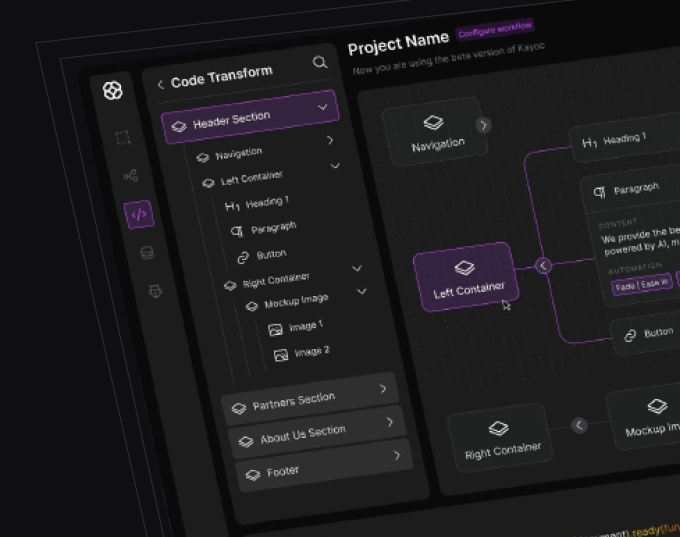
Revolutionizing Credit Risk – How A3logics and Heimler Redefined Trust and Precision with Machine Learning
Discover More
Transforming Risk to Opportunity – A3logics and Heimler Revolutionize Credit Risk Modelling
Discover More





















A3Logics specializes in delivering custom healthcare software solutions that address the unique challenges faced by healthcare and life sciences organizations. Our expertise encompasses a wide range of services, including telemedicine platforms, electronic health records (EHR), and mobile health applications. By leveraging advanced technologies such as AI, IoT, and blockchain, we empower healthcare organizations to enhance their services, streamline processes, and improve patient care.

The integration of metaverse technology in healthcare is revolutionizing how patients interact with medical professionals and access care. Our healthcare metaverse development services provide immersive experiences that enhance patient engagement and training. Key offerings include:

Digital twin technology is transforming how healthcare providers manage patient care and treatment plans. By creating virtual replicas of patients, we enable personalized treatment strategies. Our digital twin services include:
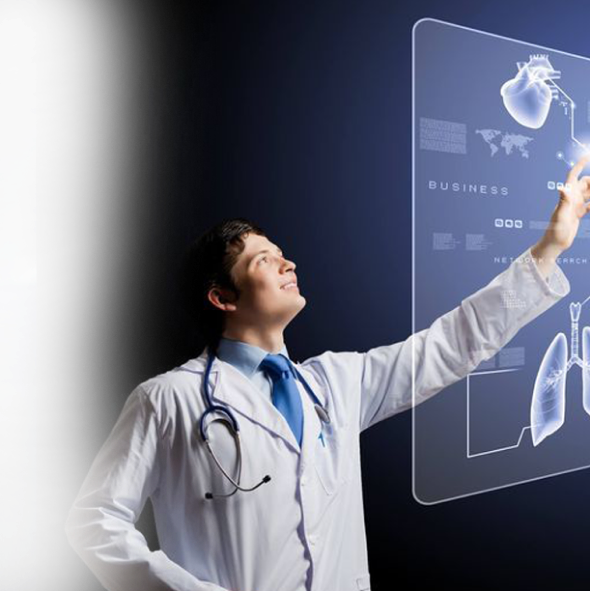
Our life sciences R&D services streamline research processes and enhance clinical trial management. We build tools that facilitate collaboration and data analysis throughout the drug development lifecycle:

We ensure secure access to patient data while maintaining privacy through decentralized systems. Blockchain technology enhances security, transparency, and efficiency in healthcare operations. Our blockchain services address critical challenges in data management and security:

We help you use predictive analytics to identify at-risk patients and implement strategies to reduce readmissions. Our business intelligence services empower healthcare organizations with actionable insights derived from data analytics. We help providers optimize operations and enhance decision-making by building:

Artificial Intelligence (AI) and Machine Learning (ML) are at the forefront of transforming healthcare practices. A3Logics integrates these technologies into your solutions to enhance diagnostic accuracy, streamline operations, and improve patient care.

The Internet of Things (IoT) is transforming patient care by connecting devices that monitor health metrics in real-time. A3Logics specializes in developing innovative IoT solutions tailored specifically for the healthcare sector.
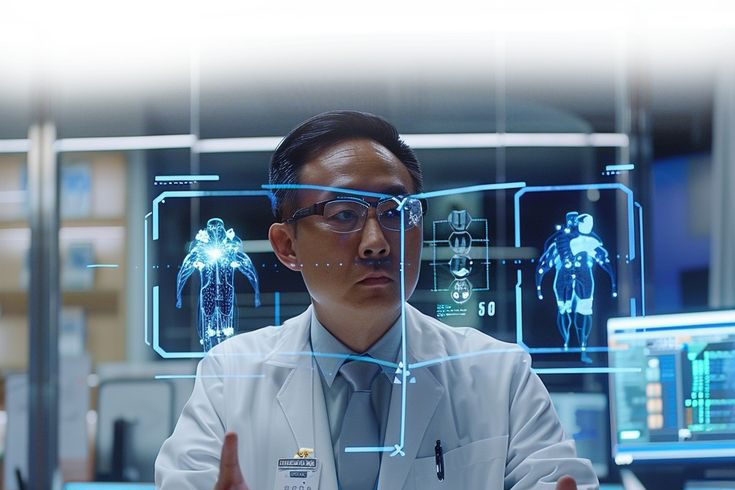
Our appointment scheduling software simplifies how patients book appointments with healthcare providers. It allows for smooth interactions and reduces the administrative workload for staff. This leads to improved efficiency across the entire operation, benefiting everyone involved.
We offer medication adherence services that help patients manage their prescriptions effectively. These services send reminders about when to take medications and provide educational resources about potential side effects and interactions. This ensures that patients achieve the best possible health outcomes.
Our robust patient engagement software development services fosters better communication between patients and providers. By encouraging active participation in treatment plans, we help improve patient satisfaction and overall experiences.
Our telemedicine software development services enables remote consultations between doctors and patients. This technology breaks down geographical barriers, making quality care accessible to everyone. It also helps increase patient retention by providing convenient healthcare options.
We specialize in developing mobile applications tailored to meet the specific needs of our clients. These apps ensure maximum effectiveness throughout their operation, driving growth and sustainability in healthcare services.
Our remote patient monitoring software development services continuously tracks vital signs and symptoms, allowing for timely interventions when necessary. This capability enhances patients’ quality of life and leads to higher satisfaction levels among users.
A3Logics is committed to embracing innovation by integrating advanced technologies into our healthcare services. Our goal is to improve service delivery and enhance the overall experience for everyone involved in the healthcare process.

Our medical AR (Augmented Reality) and VR (Virtual Reality) services provide immersive training experiences for healthcare professionals. These technologies help users better understand complex surgical procedures, leading to improved skills and proficiency over time.
Discover More
Quantum computing is changing the way drugs are discovered. By analyzing large datasets quickly, it identifies potential compounds faster than traditional methods. This acceleration increases the chances of successful drug development.
Discover More
We develop medical imaging software that enhances diagnostic capabilities. Our services provide clearer images, allowing healthcare providers to make more accurate assessments of patients’ conditions, ultimately leading to better health outcomes.
Discover More
Our cloud computing services enable secure storage and remote access to sensitive information. This facilitates collaboration among healthcare teams, regardless of their locations, improving efficiency and productivity across the board.
Discover More
We offer custom compliance services that help healthcare organizations adhere to industry regulations. These services protect sensitive information from breaches and other security threats, ensuring patient trust and retention.
Discover More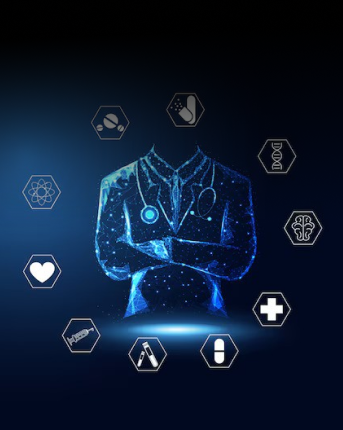
Our IOMT services connect medical devices, allowing them to communicate seamlessly with each other. This real-time monitoring enables timely interventions when necessary, enhancing patients’ quality of life and satisfaction.
Discover MoreA3Logics specializes in creating healthcare administrative software specifically designed to enhance operations within healthcare organizations. Our services aim to maximize effectiveness throughout the entire operational lifecycle, driving growth and sustainability while benefiting all stakeholders involved.
Our Electronic Health Record (EHR) and Electronic Medical Record (EMR) software streamlines the documentation process, improving the accuracy and accessibility of patient records. This enhances coordination among healthcare teams, leading to better patient care and higher retention rates.
We develop Healthcare Enterprise Resource Planning (ERP) software that integrates various functions within an organization. This optimizes workflows and resource allocation, resulting in greater efficiency across departments and supporting overall growth.
Our Customer Relationship Management (CRM) software enhances the management of relationships between healthcare providers and patients. It fosters trust and communication, encouraging patients to engage actively in their treatment plans, which leads to improved satisfaction levels.
Our Revenue Cycle Management services optimize financial processes within healthcare organizations. They ensure timely collections and reduce the administrative burden on staff, allowing them to focus on core operations effectively, which drives overall efficiency.
We create hospital management software that streamlines operations across various departments. This improves coordination and communication among teams, enabling them to deliver quality care efficiently and enhancing patient experiences.
Our medical practice management software simplifies administrative tasks such as scheduling, billing, and documentation. This allows healthcare practitioners to concentrate on providing exceptional services while improving efficiency across the organization.
Our rapid development process ensures that projects are delivered on time without sacrificing quality. This allows our clients to launch their products faster than their competitors, achieving greater efficiency across departments and driving growth.
We use powerful data analytics tools to help organizations gain actionable insights from their data. This optimizes decision-making processes and enhances operational efficiency, leading to higher retention rates.
Our custom healthcare solutions are designed to address the specific challenges faced by organizations in the healthcare industry. This ensures maximum effectiveness throughout the entire operational lifecycle, promoting growth and sustainability.
With extensive experience working with various clients across different sectors, we have a deep understanding of the complexities involved in the healthcare landscape. This enables us to consistently deliver exceptional results that meet our clients’ expectations.
Our regulatory compliance consultants help organizations navigate complex industry regulations. We safeguard sensitive information against breaches and other threats, enhancing trust and reputation with clients.
We provide end-to-end development services that cover every stage of a project, from initial consultation and design to implementation and support. This ensures seamless integration with existing IT systems and maximizes effectiveness throughout the entire operational lifecycle.
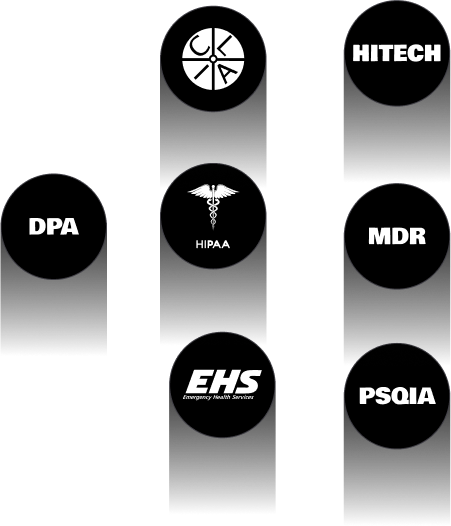
A3logics redesigned the logistics software of a mobile app solutions company’s end customer. The project included creating a comprehensive solution with reporting features, order tracking, and system updating.

“Their distinct flexibility and their strong communication were the project’s main assets.”


A construction technology company hired A3logics for custom software development. They created a construction digital platform that allows users to see project areas, distribute resources, and share data.
“Their software has proven essential in the construction sector.”

A3logics created and implemented a custom logistics software solution for a wealth management platform. This included developing features and integrating real-time tracking and data analytics functionalities.

“They ensured our collaboration went well by providing timely items and responding quickly to our requests.”


A3logics created and executed a personalized Generative AI system that featured chatbots for customer service, prediction algorithms, and AI-powered data analysis tools.

“Their technical expertise and reactivity were excellent.”


A3logics has developed an administrative management system for a health testing company. The product is designed to handle operations such as consultant matching, time reporting, and compensation management.

“The collaborative team we’ve worked with has shown great flexibility and excellent project integration.”


A transportation company hired A3logics to create a custom software program for freight activity tracking. The team also created invoicing tools and a driver-tracking system connected to a dispatch system.

“Their thorough inquiry and engagement with our team reflect their commitment to understanding our requirements.”




Marketing Head & Engagement Manager